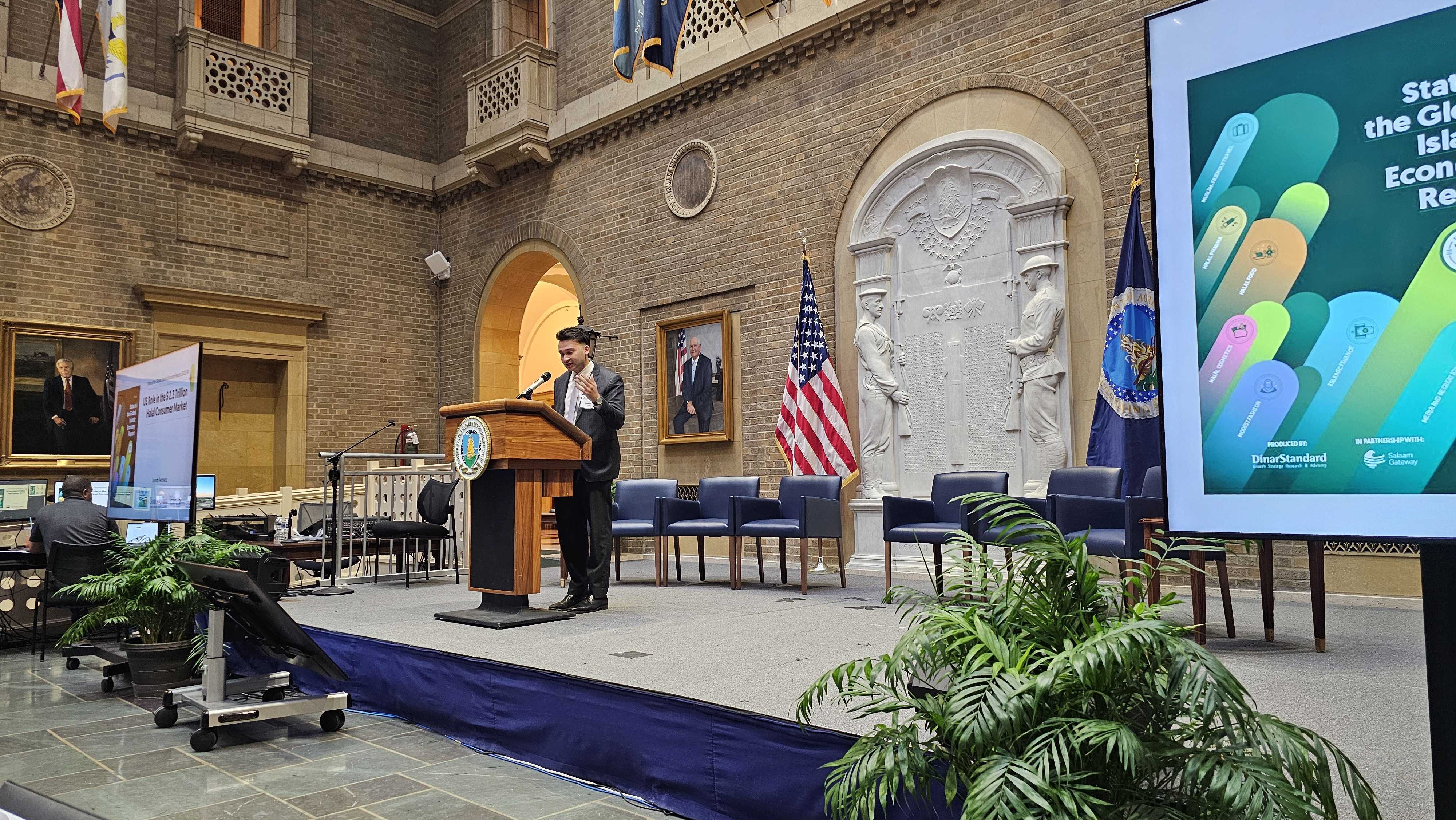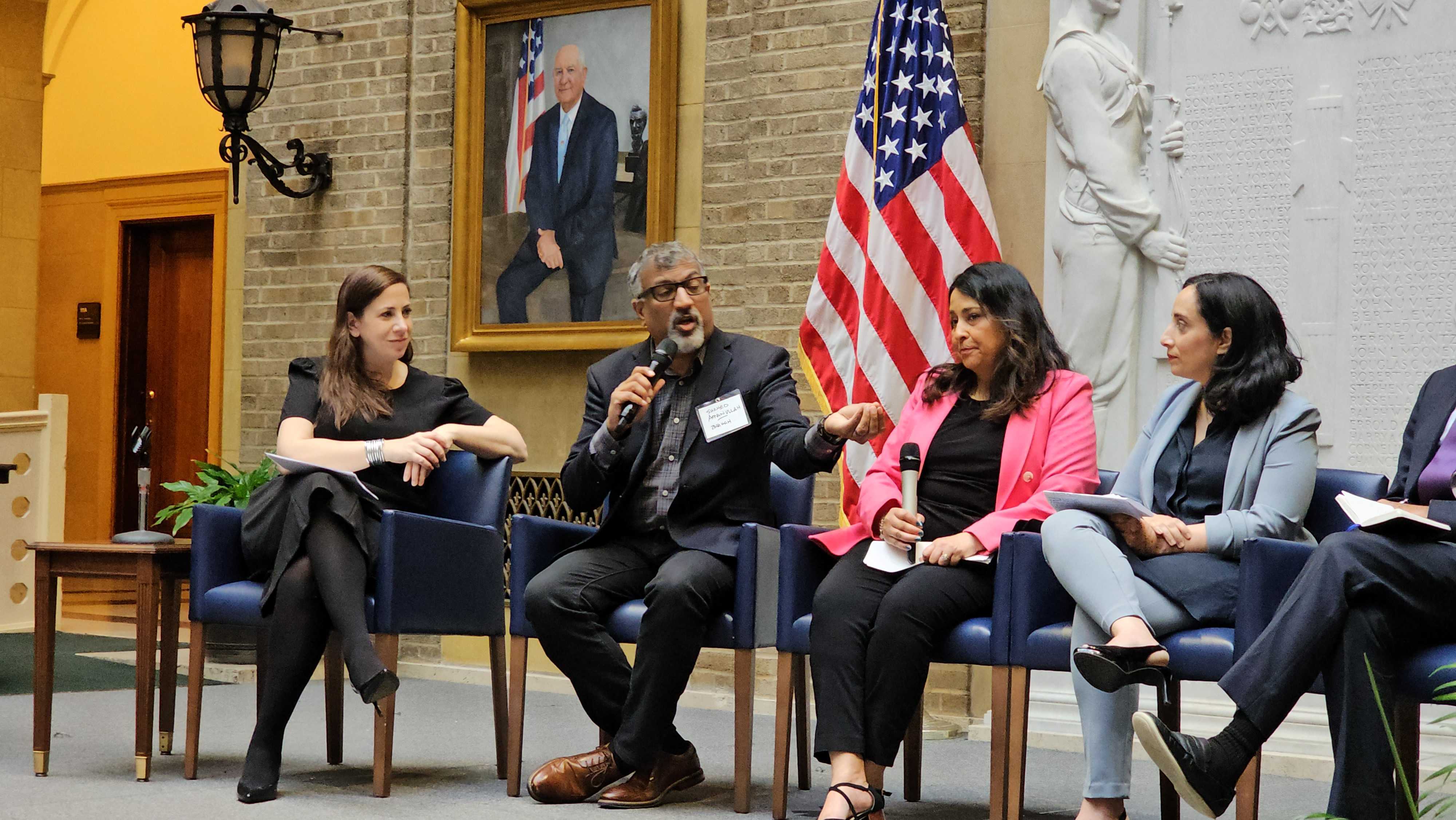US plays key role in building up Islamic economy momentum
The Islamic economy has gathered pace in recent years, having grown significantly on the back of multiple drivers, including growing consumer awareness and demand, evolving regulatory landscape and top-tier support.
Muslims spent $2.3 trillion on food, pharmaceuticals, cosmetics, modest fashion, travel, and media in 2022, with Islamic finance (IF) assets estimated to have reached $3.96 trillion in 2021/22, according to DinarStandard’s State of the Global Islamic Economy Report 2023/2024, released late last year. IF assets are expected to scale to $5.94 trillion by 2025/26.
Although Muslim-majority countries form the core nucleus of the Islamic economy industry, non-Muslim countries such as the United States have also been instrumental in the advancement of the space.

The United States was ranked the third largest exporter of food and beverages to major halal consumer markets in 2022, raking in $15.4 billion in exports. It exported $20.8 billion worth of halal products to the Organization of Islamic Cooperation (OIC) same year, ranking 4th globally.
Meanwhile, its halal lifestyle consumer market, estimated at $63.6 billion in 2022, is the world’s 10th largest.
The SGIE report represented an array of opportunity findings relevant to the US market, most of which will be presented to key stakeholders at an event on April 17 held in Washington D.C.

“The global halal consumer market presents a tremendous opportunity for the United States. The upcoming event, organized jointly with the US Department of Agriculture, serves as a critical platform where US government experts and industry leaders come together. It will focus on exploring avenues for further engagement and growth within this dynamic market,” said Reem El Shafaki, partner at DinarStandard.
“We are committed to leveraging this gathering to foster dialogue, deepen understanding, and cultivate strategic partnerships that will benefit the US economy and global markets and stakeholders.”
Besides top-tier support, corporate developments and initiatives from the US halal economy range from food to finance, bolstering the sector. From the expansion of halal food restaurant franchise The Halal Guys and Haute Hijab’s achievements in the realm of modest fashion to Wahed disrupting the Islamic ethical fintech space, several halal brands have emerged from across the country.
Corporate developments beckoned investor interest, too, with investments in halal economy-relevant companies reaching $25.9 billion in 2022/23, representing a 128% year-on-year growth. The US ranked 8th, with a growth of 17% in 2022/23 compared to the prior year.
Meanwhile, the country ranked 26th out of a list of 81 countries in the SGIE report’s Global Islamic Economy Indicator (GIEI) index. The country occupied 27th spot in halal food, 11th in Islamic-themed media and recreation, and 15th in modest fashion.
The State of the Global Islamic Economy Report 2023/2024 is available for download here.

